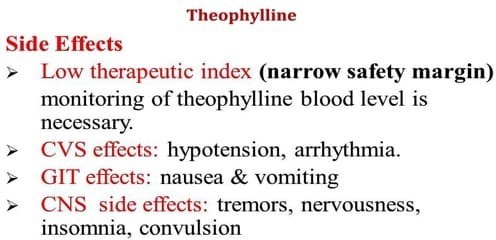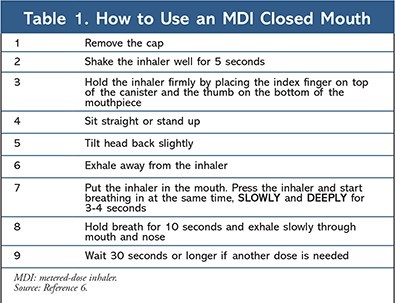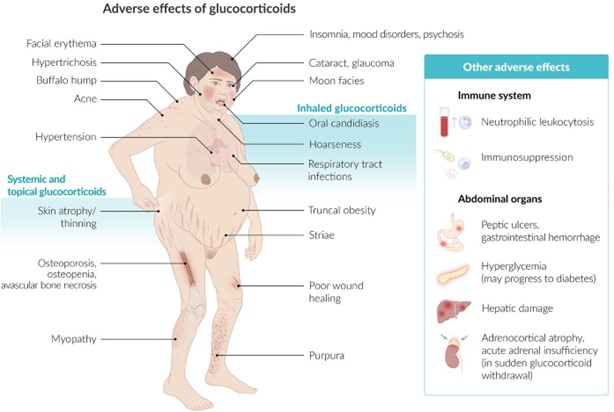A nurse is providing discharge instructions to a client who has asthma and is about to start taking theophylline (Theo-24). The nurse should tell the client that this medication might cause which of the following adverse effects?
Constipation
Oliguria
Drowsiness
Dysrhythmias
The Correct Answer is D
Theophylline is a bronchodilator medication used in the treatment of asthma and other respiratory conditions. It works by relaxing the smooth muscles in the airways, allowing for easier breathing. However, theophylline is associated with potential adverse effects, and one of the most significant concerns is its potential to cause dysrhythmias (irregular heart rhythms).
Dysrhythmias can include tachycardia (rapid heart rate), atrial fibrillation, or other disturbances in heart rhythm.
Constipation is not a commonly reported adverse effect of theophylline. Oliguria (decreased urine output) is not typically associated with theophylline use. Drowsiness can occur with theophylline, but dysrhythmias are considered a more significant and potentially serious adverse effect. It is crucial for the nurse to educate the client about the potential for dysrhythmias and advise them to report any irregular heartbeat or other cardiac symptoms promptly.

Nursing Test Bank
Naxlex Comprehensive Predictor Exams
Related Questions
Correct Answer is C
Explanation
When using an albuterol inhaler, it is important for the client to take a slow and deep inhalation while releasing the medication from the inhaler. After inhaling the medication, holding the breath for about 10 seconds allows the medication to reach deep into the airways and maximize its effectiveness.
The other actions mentioned are not correct:
A. Waiting 10 minutes between inhalations: Albuterol inhalers are typically used as a quick-relief medication for acute symptoms, and waiting 10 minutes between inhalations may not provide immediate relief when needed. The specific instructions on the frequency of inhalations should be provided by the healthcare provider.
B. Taking a quick inhalation while releasing the medication from the inhaler: It is important to take a slow and deep inhalation while releasing the medication to ensure that the medication reaches the lungs effectively. Taking a quick inhalation may result in less effective delivery of the medication.
D. Exhaling as the medication is released from the inhaler: It is important to exhale fully before using the inhaler to ensure that the medication is inhaled deeply into the lungs. Exhaling while releasing the medication can interfere with the proper inhalation technique.

Correct Answer is C
Explanation
White coating in the mouth: A white coating in the mouth could be a sign of a fungal infection such as oral thrush. Fluticasone, which is a corticosteroid, can increase the risk of developing fungal infections. Therefore, the nurse should instruct the client to report any signs of oral thrush or other unusual changes in the mouth, such as white patches or discomfort, to the provider.
Prompt identification and treatment of oral thrush are necessary to prevent its progression and ensure effective management of the client's condition.
Dry oral mucous membranes: Dry oral mucous membranes are not typically associated with fluticasone/salmeterol use. However, if the client experiences persistent or severe dryness in the mouth or any other unusual oral symptoms, it should be reported to the provider. Dry mouth can sometimes occur as a side effect of medications or indicate other underlying issues that need to be addressed.
Sedation: Sedation is not a common side effect of fluticasone/salmeterol. If the client experiences excessive drowsiness or sedation that interferes with their daily activities, it may be important to report this to the provider. While sedation is not a typical adverse effect of this medication, individual responses can vary, and it is essential to ensure appropriate monitoring and management.
Increased appetite is not typically associated with fluticasone/salmeterol use. It is not a commonly reported adverse effect of the medication. However, if the client experiences significant and unexplained changes in appetite that are concerning or persistent, it may be worth mentioning to the provider during a follow-up appointment or as part of ongoing monitoring.

Whether you are a student looking to ace your exams or a practicing nurse seeking to enhance your expertise , our nursing education contents will empower you with the confidence and competence to make a difference in the lives of patients and become a respected leader in the healthcare field.
Visit Naxlex, invest in your future and unlock endless possibilities with our unparalleled nursing education contents today
Report Wrong Answer on the Current Question
Do you disagree with the answer? If yes, what is your expected answer? Explain.
Kindly be descriptive with the issue you are facing.
